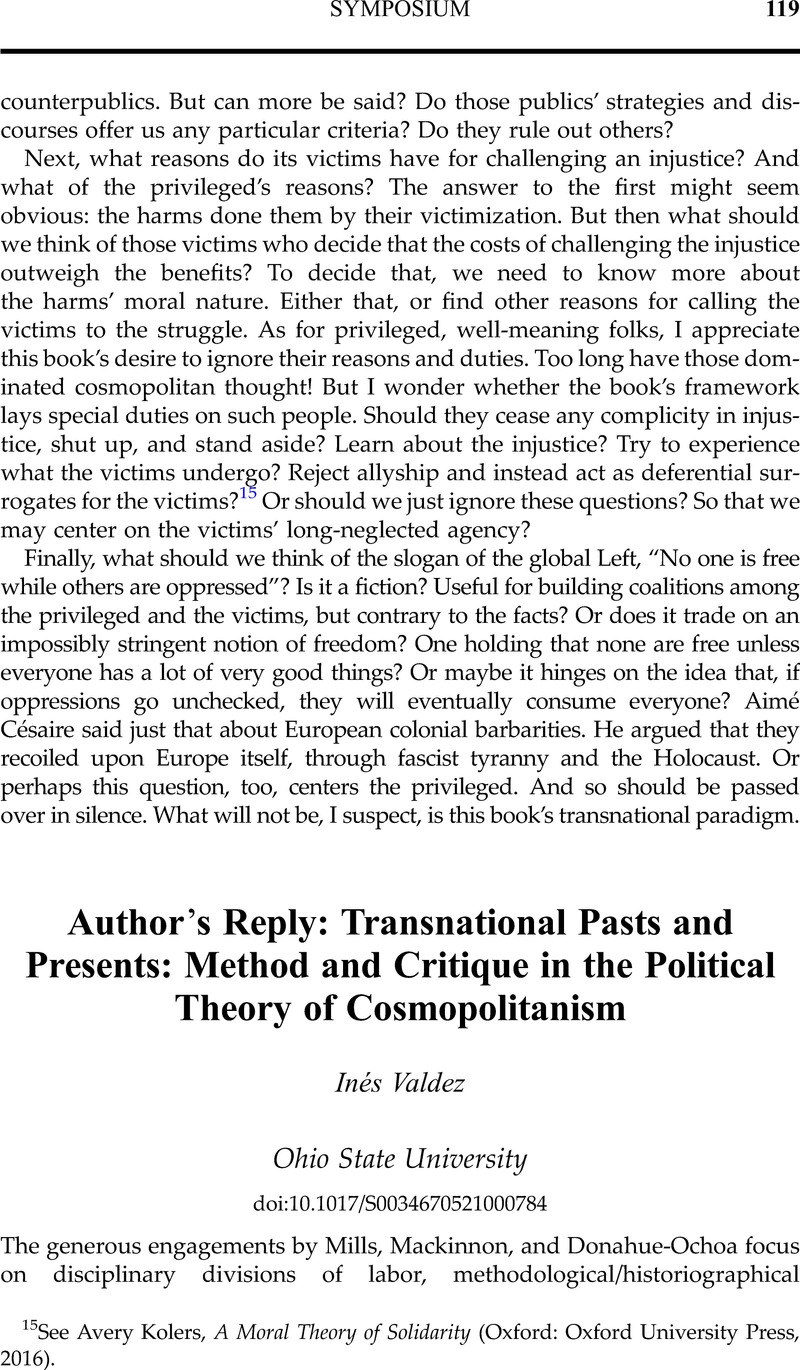No CrossRef data available.
Published online by Cambridge University Press: 11 January 2022

1 Du Bois, W. E. B., Black Reconstruction in America: 1860–1880 (New York: Free Press, 1998 [1934])Google Scholar; Gordon, Jane Anna, Creolizing Political Theory. Reading Rousseau through Fanon (New York: Fordham University Press, 2014)Google Scholar; Threadcraft, Shatema, “Intimate Injustice, Political Obligation, and the Dark Ghetto,” Signs 39, no. 3 (2014)CrossRefGoogle Scholar; Hooker, Juliet, Theorizing Race in the Americas: Douglass, Sarmiento, Du Bois, and Vasconcelos (New York: Oxford University Press, 2017)CrossRefGoogle Scholar.
2 Particularly illuminating of this transformation of Kantian insights is the conversion of a self-preservation-based account of peaceful republics in Kant into an assumed moral orientation of the charitable Westerner that underpins contemporary accounts of global justice (63, 75–76).
3 Inés Valdez, “Antiimperiale Volksouveränität: Martin Luther King, Frantz Fanon und die Möglichkeit Transnationaler Solidarität,” in Volkssouveränität und Staatlichkeit: Intermediäre Organisationen und Räume der Selbstgesetzgebung, ed. Philipp Erbentraut and Oliver Eberl (Baden Baden: Nomos Verlag, forthcoming).
4 Mills, Charles W., “‘Ideal Theory’ as Ideology,” Hypatia 20, no. 3 (2005): 165–84Google Scholar.
5 McCarthy, Thomas, Race, Empire, and the Idea of Human Development (Cambridge: Cambridge University Press, 2009)CrossRefGoogle Scholar; Allen, Amy, The End of Progress: Decolonizing the Normative Foundations of Critical Theory (New York: Columbia University Press, 2016)CrossRefGoogle Scholar; Ingram, James D., Radical Cosmopolitics: The Ethics and Politics of Democratic Universalism (New York: Columbia University Press, 2013)Google Scholar.